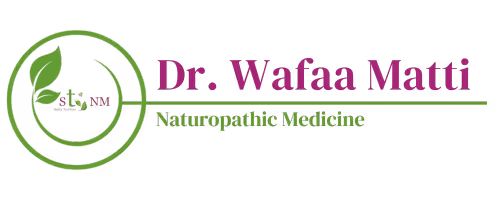
The holidays bring joy, tradition, and precious time with loved ones—but they also bring heavy meals, sugary treats, alcohol, stress, travel, late nights, and disrupted routines. It’s no surprise that many people wake up in January feeling stiff, puffy, inflamed, and noticeably older than they did in November.
In clinical practice, I often hear patients describe post-holiday joint pain, muscle stiffness, bloating, headaches, and overwhelming fatigue. Most assume this discomfort is simply part of getting older—but that’s not always true. In many cases, the real culprit is inflammation, not age.
When we overindulge or push our bodies beyond their stress threshold, inflammation rises, gut health becomes disrupted, and pain pathways activate more easily. The immune system, digestive system, and musculoskeletal system are deeply interconnected, meaning what happens in your gut or stress response can show up as pain in your joints and muscles.
What Is Inflammation? Understanding Your Body’s Alarm System
Acute vs. Chronic Inflammation
Acute inflammation is a short-term response to injury or infection. Think swelling around a sprained ankle or redness from a cut—your body sends immune cells to heal and protect the area.
Chronic inflammation, however, is subtle and often goes unnoticed until symptoms appear. Instead of turning on and off, the immune system stays slightly activated for long periods. This low-grade inflammation commonly shows up as:
- Persistent joint or muscle pain
- Fatigue that doesn’t improve with rest
- Digestive issues
- Brain fog
- Skin flare-ups
Many patients experience chronic inflammation after the holidays, when lifestyle stressors and dietary triggers accumulate.
How Inflammation Creates Aches and Pain
When the immune system is overactive, it releases cytokines—chemical messengers that can heighten pain sensitivity. These mediators can irritate tissues, stiffen joints, and amplify soreness.
Additional factors contribute:
- Joint stiffness often reflects immune activation around the joint tissues
- Inflamed gut lining can produce chemicals that travel through the bloodstream and increase pain signaling
- The gut–brain–immune axis means disturbances in digestion can influence pain perception, mood, and cognitive clarity
This is why a bloated stomach, poor sleep, or a stressful holiday dinner can lead to aching knees or an aching lower back the next morning.
Why Some People Feel It More After the Holidays
Not everyone responds to holiday indulgence the same way. Some individuals experience higher inflammation because of:
- Greater inflammatory load from sugar, alcohol, processed foods, and stress
- Multiple triggers at once (e.g., travel, emotional stress, lack of sleep, overindulgence)
- Disrupted circadian rhythm, which affects cortisol, healing, digestion, and recovery
The Gut–Inflammation–Pain Connection
Gut Health as an Inflammation Control Center
Approximately 70% of your immune system resides in your gut, making it the command center for inflammatory responses. When the gut is imbalanced, inflamed, or overworked:
- Harmful bacteria can thrive (dysbiosis)
- Inflammatory chemicals can leak into the bloodstream
- Nutrient absorption becomes impaired
This can lead to widespread symptoms like pain, fatigue, headaches, and mood changes.
Holiday Triggers for Gut Dysbiosis
Holiday habits are some of the biggest disruptors of gut balance:
- Sugar and alcohol feed inflammatory bacteria and weaken the gut barrier
- Larger, heavier meals slow digestion, causing fermentation and bloating
- Bloating increases abdominal pressure, which can irritate the diaphragm and lower back muscles, worsening pain
Even a few days of poor digestion can trigger inflammatory cascades throughout the body.
Signs Your Gut May Be Driving Your Post-Holiday Pain
You may have a gut-inflammation connection if you experience:
- Persistent bloating
- Gas or constipation
- Food sensitivities you didn’t notice before
- Brain fog or afternoon sluggishness
- Skin breakouts or redness
- Fatigue after meals
These symptoms suggest immune activation in the gut—not just musculoskeletal strain.
Why Stress Makes Gut-Driven Inflammation Worse
Stress doesn’t just affect your mood; it affects your digestion and inflammation levels.
- Cortisol weakens gut barrier integrity (“leaky gut”)
- Fight-or-flight mode slows digestion and reduces enzyme production
- Emotional stress can increase inflammatory markers in the bloodstream
This is why holiday stress—emotional tension, travel, family dynamics—can make digestive issues and body aches significantly worse.
Is It Really Age? Differentiating Inflammation from Wear-and-Tear
Normal Aging vs. Inflammatory Pain
Aging-related pain tends to develop slowly and gradually. It comes from years of biomechanical stress on the joints and muscles.
Inflammatory pain, however, feels very different:
- It can appear suddenly
- It may come and go
- It often worsens after certain foods, stress, or lack of sleep
- Younger adults may feel it after holidays or stressful seasons and think they are “just getting old”
When pain fluctuates or is clearly linked to lifestyle triggers, inflammation—not age—is usually the root issue.
When It’s Hormonal, Not Age
Hormones have a profound impact on inflammation levels, pain sensitivity, and tissue repair. Around the holidays, when stress and sleep disruption peak, hormone-driven inflammation can feel even more pronounced.
Perimenopause & Menopause
Estrogen has natural anti-inflammatory effects. When it fluctuates or declines:
- Joint stiffness
- Muscle aches
- Swelling
- Fatigue
often worsen—especially after dietary indulgences.
Low Thyroid Function
Hypothyroidism is known for causing:
- Muscle aches
- Slow recovery after activity
- Puffy or swollen joints
- Fatigue and low stamina
Thyroid shifts often surface around times of stress, travel, or disrupted routine.
Low Testosterone
In both men and women, low testosterone may lead to:
- Reduced muscle mass
- Slower tissue repair
- Joint instability or strain
- Increased fatigue
These issues magnify inflammation, especially when paired with poor sleep, sugar intake, or stress.
Natural, Evidence-Informed Ways to Calm Post-Holiday Inflammation
Nutritional Reset
Food is one of the most direct ways to influence inflammation.
- Add leafy greens, berries, turmeric, ginger, and omega-3 rich fish
- Reduce sugar, refined carbohydrates, and alcohol
- Prioritize hydration and electrolytes to reduce swelling and flush inflammatory byproducts
Simple shifts can dramatically calm post-holiday discomfort.
Support the Gut
A calm gut creates a calm immune system. To support digestion:
- Add probiotics and prebiotic fibers (general guidance)
- Increase fiber-rich foods such as vegetables, chia seeds, and oats
- Consider gentle digestive bitters before meals to stimulate stomach acid and enzymes
For persistent symptoms, GI testing may be recommended after a personalized evaluation to identify dysbiosis or inflammation.
Movement for Pain Relief
Movement improves circulation, reduces stiffness, and lowers inflammatory markers.
- Low-impact walking encourages lymphatic flow
- Stretching or restorative yoga relaxes tight muscles
- Gentle mobility exercises help joints stay lubricated
You don’t need intense workouts; consistency matters far more than intensity.
Sleep Restoration
Sleep is one of the most powerful anti-inflammatory tools you have.
- Aim for an earlier bedtime as your body heals most deeply before midnight
- Get morning light exposure to reset circadian rhythms
- Reduce evening screen time to support natural melatonin production
Good sleep = lower inflammation.
Stress Reduction
Stress directly activates inflammatory pathways. Nervous-system-calming practices include:
- Breathwork
- Guided meditation or prayer
- Mindfulness exercises
- Gentle nervous system regulation techniques like progressive relaxation
Even five minutes a day can meaningfully lower inflammatory load.
Anti-Inflammatory Nutrients
Nutrients shown in research to support inflammation balance include:
- Magnesium
- Omega-3 fatty acids
- Curcumin (turmeric)
- Vitamin D
- Boswellia
- Quercetin
Always consult with a qualified clinician to determine safety and dosing for your body.
When Personalized Care Is Needed
If inflammation persists, personalized care may include:
- Lab testing for inflammatory markers, thyroid levels, hormones, or insulin resistance
- Assessing gut health, nutrient deficiencies, or food sensitivities
- Creating a tailored nutrition, lifestyle, and therapeutic plan to reduce inflammation at the root
Naturopathic medicine focuses on uncovering why inflammation is happening—then addressing it holistically.
Ready to Calm the Inflammation and Feel Like Yourself Again?
Post-holiday aches are common—but not something you need to accept as “getting older.” In many cases, your discomfort reflects inflammation, not age. Gut health, stress levels, sleep quality, and hormones all play key roles in how your joints and muscles feel.
The good news? With the right support, inflammation can be calmed, symptoms can improve, and your body can return to balance.
If you’re dealing with ongoing joint pain, fatigue, digestive discomfort, or inflammation after the holidays, Dr. Wafaa Matti offers compassionate, evidence-based naturopathic care to uncover your root causes and guide your healing journey.
Contact Information
📍 By appointment only – Encinitas, CA
Stengler Center for Integrative Medicine 324 Encinitas Blvd, Encinitas, CA 92024
📞 Call to schedule: 760-274-2377
📧 Email: clinic@drwafaamatti.com
🌐 Website: drwafaamatti.com
.svg)
Explore Our Latest Insights
Discover tips for better digestive health.
Ready to Take the Next Step?
Reach out today to schedule your visit or ask a question—Dr. Wafaa’s team is here to support your wellness journey, both in person and online.


